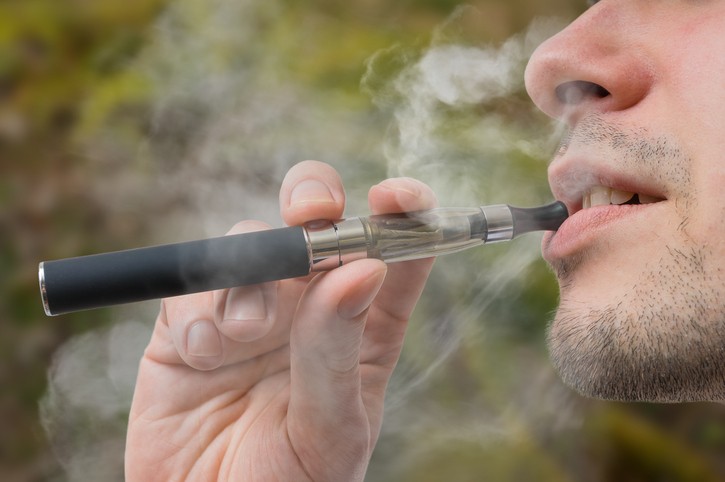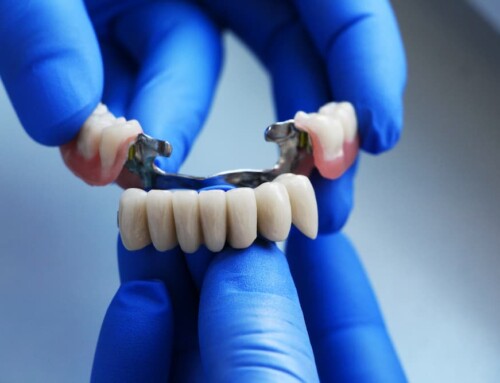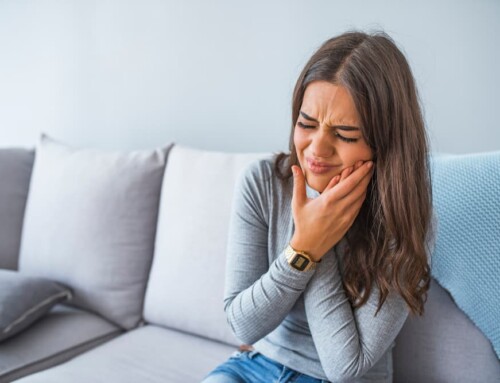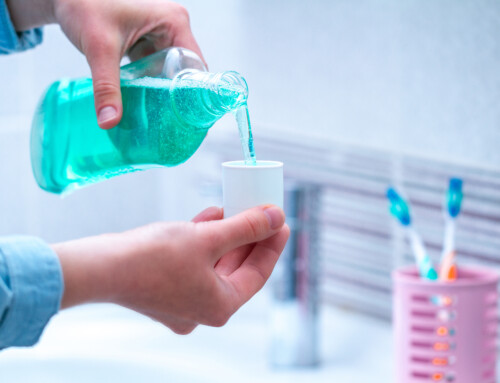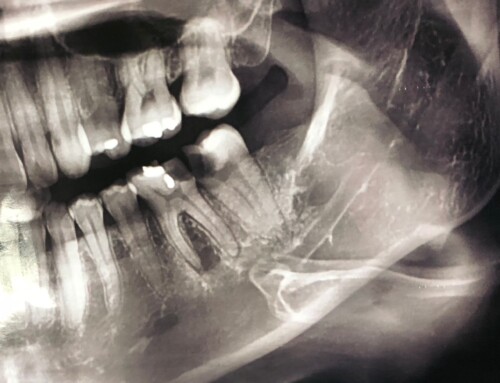Updated June 9, 2021
It is well known that vaping is the hip and trendy alternative to smoking in today’s day and age, but if you are thinking “does vaping damage teeth” or “does vaping make your teeth yellow”? Read this!
Well, let’s just say this; it isn’t proven to be 100% safe.
Dr. Dale Brant of Ingenious Dentistry states simply, “Vaping can cause a lot of dry mouth which, in turn, can lead to tooth decay.”
How Does Vaping Affect Your Teeth and Gums? Does Vaping Damage Teeth?
- Vaping may well be better for non-smokers, as it does not produce secondhand smoke like tobacco. Still, vaping does not offer any benefits to dental health. One of the problems is that vaping still brings users into contact with nicotine. This significantly reduces blood flow, restricting the supply of nutrients and oxygen to the soft tissues of the mouth.
- Is vaping bad for your gums? Vaping can cause the gums to recede because of the nicotine, which causes the blood vessels to restrict and decreases blood flow to the gums. When the e-cigarette vapors are burned, it causes the release of inflammatory proteins in the gum tissue which can result in oral diseases such as periodontitis.
- Reduced blood circulation also inhibits the mouth’s natural ability to fight against bacteria. Infection, decay rates, and other problems all can be accelerated. Over an extended period, tooth loss and other health problems can result from vaping.
Comparing Vaping to Smoking
Instead of a conventional cigarette that produces smoke, vaping uses an electronic cigarette – or “e-cig” – that produces vapor. The electronic cigarette consists of a heating element to heat “vape juice” where the nicotine and other elements are housed.
Initially, it was believed that since vaping generates a smokeless vapor, it would be better for everyone.
Many concerned smokers are making the switch to e-cigs and vaping instead, seeking to avoid the various health issues—including oral health—that come with tobacco use. Vaping is cited as being safer overall and having a reduced risk of gum and teeth damage.
However, its effects on the body are not yet fully understood; studies are still being conducted on whether vaping is better for your mouth than smoking, but overall conclusions are unclear.
Many of these studies contradict each other, and several criticisms arise regarding the conditions present, which opponents say do not resemble actual usage of e-cigs—in vitro testing of cells from human gums disregard their natural environment, studies implicating e-liquids in the formation of formaldehyde and other toxins involve burning temperatures far higher than what would be used in practice.
Ultimately, e-cigs are a much newer trend than cigarettes, so data on long-term use is not readily available, and a broad conclusion is hard to make. That said, habitual vapers should talk with their dentist about potential issues.
What Dental Symptoms Should Concern Vapers?
Just because someone vapes, it does not mean they will develop gum disease. Still, they should be alert to the symptoms. The more you vape and the longer you do so, the more likely you are to encounter health complications.
Some common symptoms of periodontal disease include:
- Ongoing bad breath (halitosis)
- Red, irritated, or bleeding gums
- Tenderness or swelling of gums
- Wobbly teeth or loss of teeth
- The recession of gum tissue
If gum disease is detected early, treatment is much more likely to be successful. Treatment that starts early is more likely to prevent tooth loss, as well. With laser periodontal treatment, Dr. Brant at Ingenious Dentistry can ensure the underlying infection is eliminated in one or two visits.
The Dry Mouth Effect
A common symptom that vapers struggle with is the dry mouth effect. This arises because of the propylene glycol used in e-liquids for vapor production. Propylene glycol is a hygroscopic compound, meaning it tends to attract water molecules and draw them away from the surroundings. While useful in other applications as a food or medicine additive, here it can desiccate oral tissues and reduce saliva production.
Besides being an unpleasant sensation, this can leave your mouth more vulnerable to gum disease and tooth decay in the long term. Many vaping experts suggest drinking more water or switching to e-liquids with a lower proportion of propylene glycol to combat the dry mouth effect.
Does the Choice of E-Liquid Matter?
E-liquids are generally composed of a select few ingredients: propylene glycol and glycerin form the base, producing vapor when burned and acting as carriers for flavoring and, optionally, nicotine. The liquids used in vaping will vary mainly in the flavoring used, the presence or absence of nicotine, and the proportion of propylene glycol to glycerin. The effects of nicotine on oral health are already well-understood, but using nicotine-free e-liquid avoids the risks associated with it. As for the other components:
- Propylene glycol is associated with the dry mouth effect many vapers experiences. A high proportion of propylene glycol can dry out the mouth, so water intake should be increased.
- Glycerin has been rumored to enable the formation of biofilms by allowing bacteria to better adhere to enamel. However, these statements originate from claims that its presence in toothpaste is a danger to oral health—made by those selling their own ‘alternative’ toothpaste. Adverse effects from glycerin use mainly result from allergic reactions that irritate the mouth and throat.
- While flavoring is often the biggest draw for vapers, poor industry regulations have allowed the use of additives with harmful effects. Most notably, diacetyl, a food additive with a buttery flavor, has been known as a respiratory hazard, and some e-liquid flavors still contain it.
Vaping and Dental Health! Vapers, Be mindful
The final question, then: does vaping stain teeth and is vaping bad for your teeth? While research and debates continue about the overall health benefits and risks of vaping, with no clear verdict, potential oral health issues are clear thanks to well-known components of e-liquids. If you choose to vape, pay attention to what’s in your e-liquid of choice and make sure to keep up with proper dental care habits. Brush and floss daily, stay hydrated, schedule regular cleanings and check-ups, and talk to your dentist for advice on your specific case.
Vaping is a personal choice, but vapers should be aware of the risks. Regular check-ups and dental cleaning will help you protect your teeth and gums. To learn more, contact Ingenious Dentistry today or visit our Houston, TX office.
Dr. Brant confirms that he and other Houston dentists are seeing more patients who vape. “We, at Ingenious Dentistry, understand that many people choose to vape, especially in an effort to quit smoking tobacco. We also want our patients to understand that vaping, like traditional smoking; can be detrimental to oral health.”
When it first arrived on the scene a few years ago, vaping was touted as a safer and healthier alternative to smoking.
But is it, really? From the perspective of your dental health, the answer is clear – and it is “No!”
_________________________________________________________
_________________________________________________________


